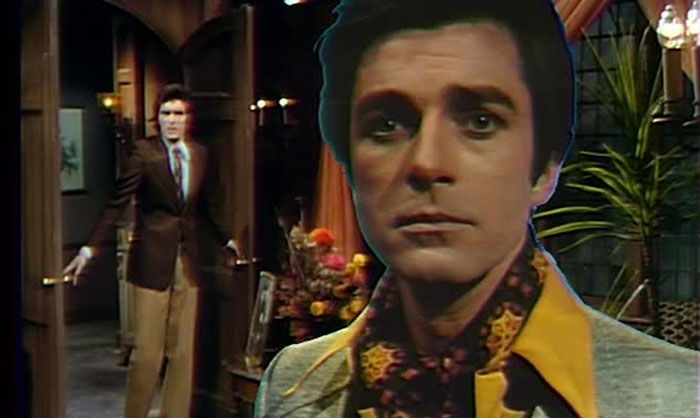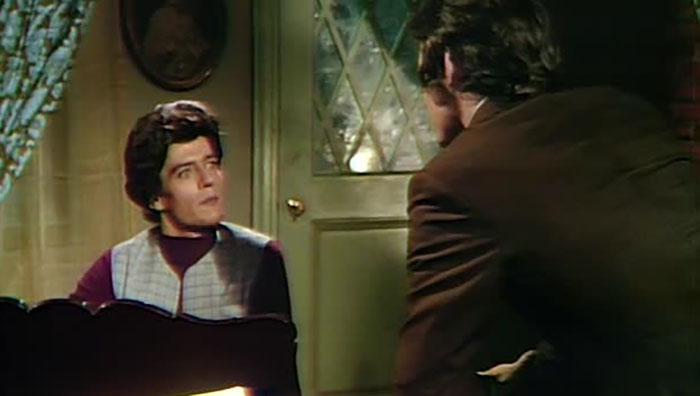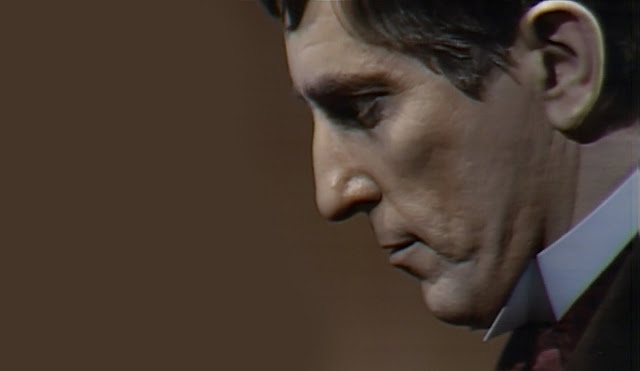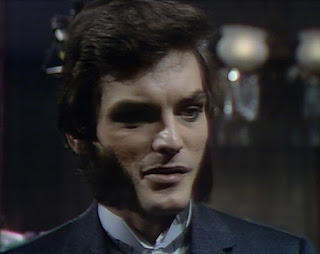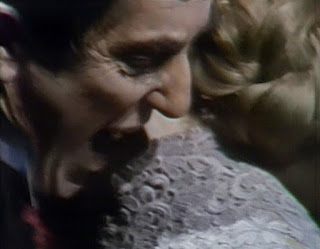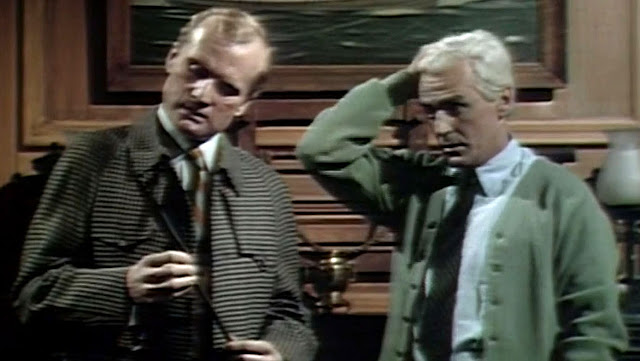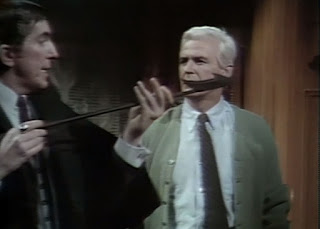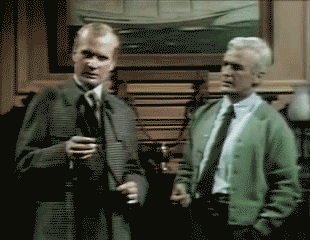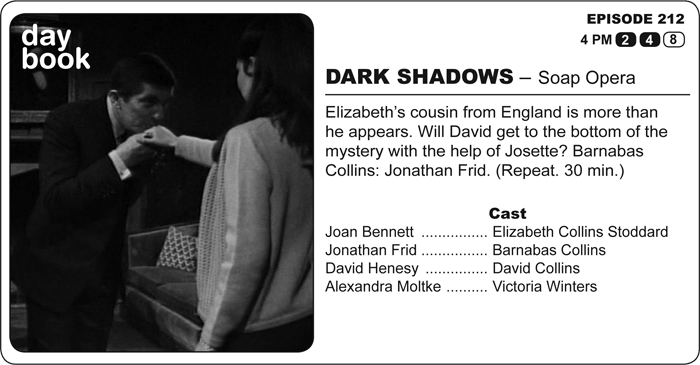By PATRICK McCRAY
Taped on this day in 1970: Episode 994
When Quentin encounters the specter of Dameon Edwards, do Angelique’s former
lovers stand a ghost of a chance at keeping it together? Trask: Jerry Lacy. (Repeat; 30
min.)
Quentin is shocked when the ghost of Angelique’s former friend, Dameon Edwards,
begins dripping blood around Collinwood. Trask, the butler, and Bruno barely maintain
their composure when informed of the manifestation.
Four years ago, this was day two of the Daybook, and it was a significantly different
animal. It was a good call on Wallace’s part, several months later, to limit me to just one
episode a day. Over the years, I went from little to say about an episode to sometimes
an embarrassing abundance. I often wondered if I would run out of things to talk about
regarding the show, and the notion is absurd.
The real star of this one is Dameon Edward’s suit.
That may actually be true.
The remarkable thing about that is the fact that this tight, haunted episode does not
need a fantastic costume or two to eclipse it. With the exception of Amy’s appearance at
the end, it’s a masculine episode… as much as one can be when the costume
department raids Bea Arthur’s closet. Which, come to think of it, is pretty butch. And my
point is proved. All seriousness aside, it is about men dealing with the ghost of a man,
all in the shadow of a woman who drove everyone to the brink of distraction or worse.
After all, when you see a frosted glass on Dark Shadows, you know it’s getting broken.,
And when you see someone named Trask break it, you know that the worst is in the
offing. It’s a tight mystery, with David Selby showing what must have been refreshing
nuance for his bellicose character in PT. Especially with Michael Stroka’s Bruno, who
likewise puts in one of his subtler, most believable turns in the role, Selby plays his
notes subtly and close to the vest… but not so close that we, as invisible confidants,
don’t have an idea of what’s in his hand. He’s playing the most cuckolded character this
side of a Moliere play, and now that Angelique’s dead and Maggie is in a fit elsewhere,
he has the pleasure of slow-roasting his rivals. Even the horror of a bleeding ghost is
obscured by a delight at what that means for seventy or eighty other lovers. It’s about
time they shared in the paranoia. Come on in, fifth battalion, the water’s awful.
I always enjoyed Jerry Lacy’s too-brief turn as Trask, the butler. showing a kind of
nervous and tight professionalism that introduces a new type of domestic at Collinwood,
and one we never realized was sorely missing. Of course, he has confidence; he’s got
the only dignified coistime in the installment. The rest are sporting either Collinwood’s
most quietly outlandish or, in the case of Quentin’s brown-shirted nightmare, ugliest
ensembles on the show. I can only assume that Mostoller lost a bet with Denise
Nickerson and she got to pick out the duds with all of the restraint someone her age
would show at catering. Is it as glorious as a craft services table equipped by Farrell’s?
Dare I say, even moreso.
First, it’s clear that Michael Stroka, hair so high I imagine him inflating it by blowing into
his thumb like a cartoon character, appears like he’s wearing one of Maggie’s vest and
turtleneck numbers she sports as the governess in Primary Time. Which may be why he
never stands in the episode. I’m sure he has winning gams, but he’s no Kathryn Leigh
Scott. (Apologies for objectifying both, but when the latest from Junior Sophisticates fits,
wear it.)
Dameon Edwards’ outfit is truly the astounding star, here though. A futuristic jacket,
belted with two buttons on a sash, sans lapel makes him look like Alan Sues auditioning
to play a Bond villain. This is over a shirt with a collar wider than most major home
appliances of the age, accessorized by a scarf that would be the envy of even the great,
late Deforest Kelly. It’s an outfit that could only have come about by Roddy McDowell
costuming John Saxon in a failed Gene Roddenberry pilot, and that’s where I want to
live.
Only a bachelor ghost could have the silent swagger commensurate to carrying off such
a suit, and it’s an amazing snapshot of fashions they were sure would take off and carry
us into a glorious future. It’s impossible to watch the episode and not be carried there,
also, and Dark Shadows’ penchant of showing us a past that never quite was is finally
matched by the suggestion of a present that should have been.
This episode hit the airwaves on April 16, 1970.

